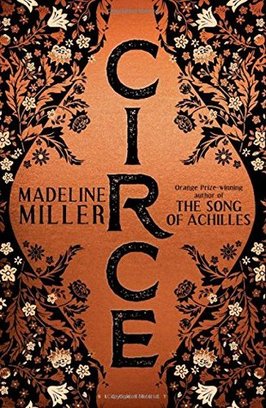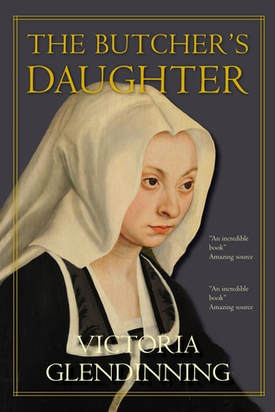Circe by Madeline Miller
Daughter of a naiad and the sun god Helios, Circe was a minor goddess in Greek mythology, an episode in Homer’s Odyssey when she transformed his ship’s crew into pigs. In Madeline Miller’s reimagining, in the nymph’s own voice, she’s given a back story and motivation, becoming a heroine in her own right.
With neither the beauty nor dulcet tones of divinity, Circe has a lonely childhood, neglected by her parents and scorned by her kin. When the brother she’s nurtured since his infancy also rejects her, Circe turns to the mortals for companionship and what she takes for love. But when Glaucus is admitted to her father’s hallowed halls, he sets his sights much higher than Circe, releasing her long-repressed jealousy and rage. That’s when she discovers the extent of her powers as a herbalist and is banished to a deserted island to see out eternity alone.
Yet her exile might be the making of her, for now she has the opportunity to get to know herself as she perfects her craft. While comfortable with solitude, she welcomes the sailors who seek refuge on her shores. But a woman alone is considered fair game to these men who’ve spent years away from their families, and only her witchcraft can keep her safe. Whether genuine or artifice, Odysseus is unique in treating her respectfully and she softens when he asks to stay on the island a while.
When he finally leaves, Circe is pregnant, and single motherhood proves stressful even for a god. But her son grows into a charming teenager who eventually sails off to Ithaca to meet his father. When he returns, it’s in sorrow, accompanied by his half-brother and his mother, Penelope. Like Circe, Penelope gets a feminist makeover, with her long wait for her husband’s return construed as patience not passivity.
Madeline Miller’s second novel – her first, The Song of Achilles winning the Orange Prize – is both an ugly duckling’s coming-of-age story and a gathering of the major figures of ancient Greece. As a girl, she witnesses the punishment of Prometheus, and holds herself responsible for the creation of the monster, Scylla, who sends countless sailors to their deaths. Temporarily allowed to leave her island prison to assist her sister giving birth to the Minotaur, she admires Daedalus, and his close relationship with his son Icarus. Back in her sanctuary, she is visited by Hermes, Athena and Jason over the centuries of her life.
Overall, the gods are portrayed as childlike, less in their playfulness but more in their amorality, vengefulness and lack of empathy and compassion. As Circe learns to appraise herself, not through their distorted lens, but with the acuity to acknowledge all her strengths and weaknesses, she also becomes able to judge others for what they do rather than for the masks of goodness or heroism they try to portray. A good place for any of us to strive for. Thanks to Bloomsbury for my review copy. For another recent novel about ancient Greeks, see my review House of Names.
The Butcher’s Daughter by Victoria Glendinning
While still a novice, Agnes is chosen to serve as secretary to the Abbess, through which she discovers a new world of political intrigue. With Henry VIII having recently proclaimed himself head of the Church of England – freedom from foreign rule as attractive in some quarters as Britain’s bid to leave the EU today – there’s a lot of politics to discover. As the King changes wives, and Thomas Cromwell rises in power, the Abbess battles to save the religious community at Shaftesbury as monasteries and nunneries throughout the land are destroyed in the Dissolution.
Of course, she fails, leaving the Sisters rudderless. The older, more institutionalised nuns suffer particularly (p257):
I have heard that some of our oldest sisters, from the very day that they left the Abbey, lost their wit and became as children or animals. And yet up until then they had been in possession of all their faculties.
Even Agnes is bemused by her freedom. Should she return to her parents, trace her son or travel to France or Spain to join another convent? Eventually she pitches up at Hay Hill in London to join a much more secular community run by one of the former Shaftesbury nuns. There she becomes the lover of Thomas Wyatt, leader of a failed rebellion against Queen Mary, which gives her another perspective on the turbulent Tudor politics where children are treated as pawns (p275-6):
The nearer you get to the hub of the wheel, the more convoluted and toxic are the relationships. And all these people, ready now to slaughter one another, have been on familiar terms since they were children. Some of them still are children.
Victoria Glendinning’s fourth novel is an engaging account of a fascinating period of English history and its impact on gentry and commoners alike. Thanks to Duckworth Overlook for my review copy.























 RSS Feed
RSS Feed





















